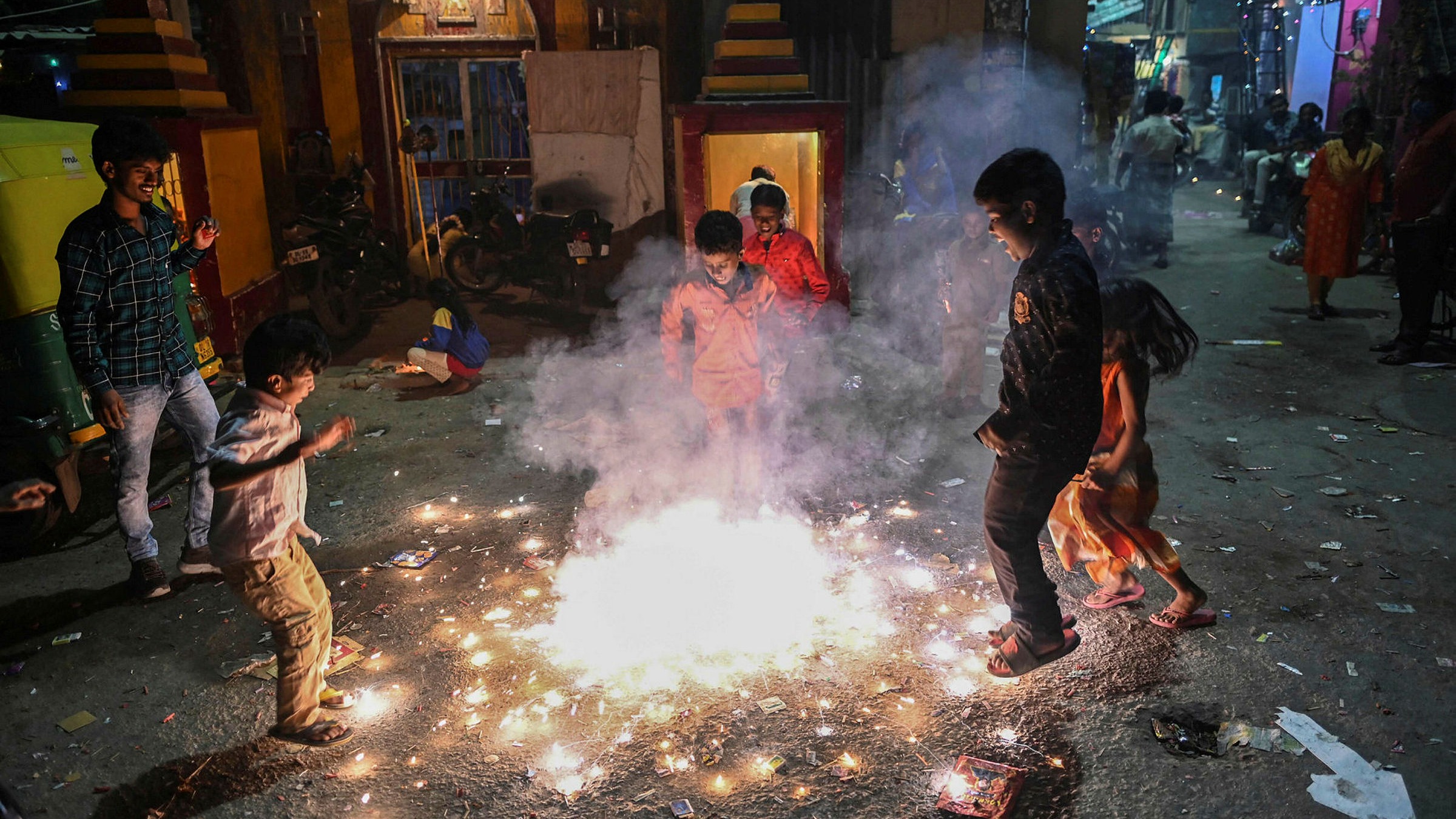
Dealing with Diwali pollution through Ayurveda
 The festival of lights is arriving. We all are anxiously waiting for the festival. For most people lighting of firecrackers is the highlight of Diwali. But little do people realize that in our increasingly populated and polluted cities, the temporary joy of firecrackers is soon replaced by the intense air and noise pollution.
The festival of lights is arriving. We all are anxiously waiting for the festival. For most people lighting of firecrackers is the highlight of Diwali. But little do people realize that in our increasingly populated and polluted cities, the temporary joy of firecrackers is soon replaced by the intense air and noise pollution.
The toxic substances used in the firecrackers release toxic gases, which is harmful to the heath of all living beings. The toxic substances /gases (such as copper, cadmium, lead and magnesium) causes respiratory diseases.
Respiratory disease comprises pathological conditions affecting the organ and tissues that includes upper respiratory tract, trachea, bronchi, bronchioles, alveoli, pleura, pleural cavity and the nerves and muscles of breathing. Some of the common respiratory diseases are common cold, asthma, bronchitis, cough, pneumonia, sinusitis etc.
When we breathe in dirty air, we bring air pollutants deep into our lungs and causes serious damages to the respiratory tract. Air pollution exposure can trigger new cases of asthma, worsens previously existing respiratory illness and provokes development of chronic respiratory ailments like COPD (chronic obstructive pulmonary diseases), sinusitis, chronic cough, lung cancer etc. Children and old age persons are particularly susceptible to the effects of air pollution.
Some of the common symptoms:
· Dry or sore throat
· Runny or blocked nose.
· Sneezing
· Headache
· Ear ache
· Coughing – firstly dry later with phlegm.
· Breathing difficult
Pathogenesis :
The pranavata (one of the 5 divisions of vata) gets vitiated due to pollution.
Combines with vitiated kapha dosha in the lungs.
Causing obstruction in respiratory passages
Resulting in breathing difficulty
Some of the medicine that can be given are:
· Dasamoolakatutrayam Kashayam
· Pathyakshadhatryadi Kashayam
· Indukantam Kashayam
· Vasarishtam
· Kanakasavam
· Agastya Rasayanam
· Dasamoola rasayanam
· Taleesadi Choornam
· Valiya Karpooradi choornam
· Chyavanprash etc.
According to the conditions of the patient.
